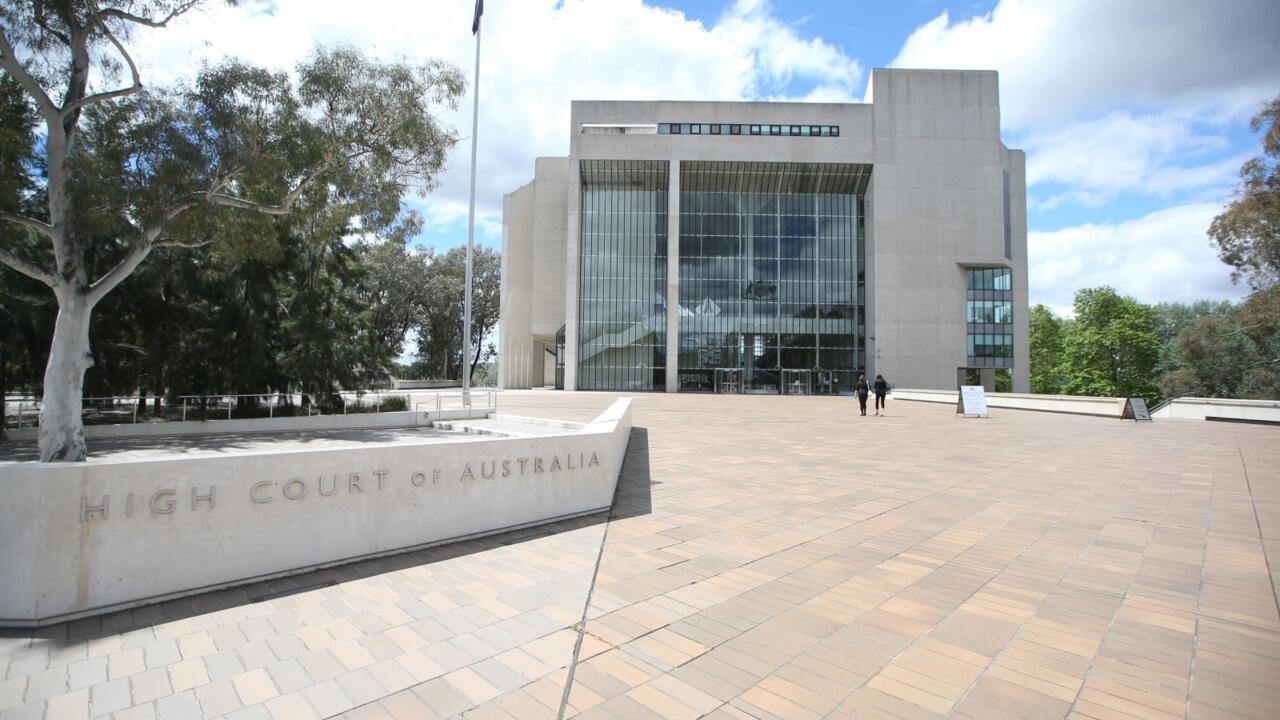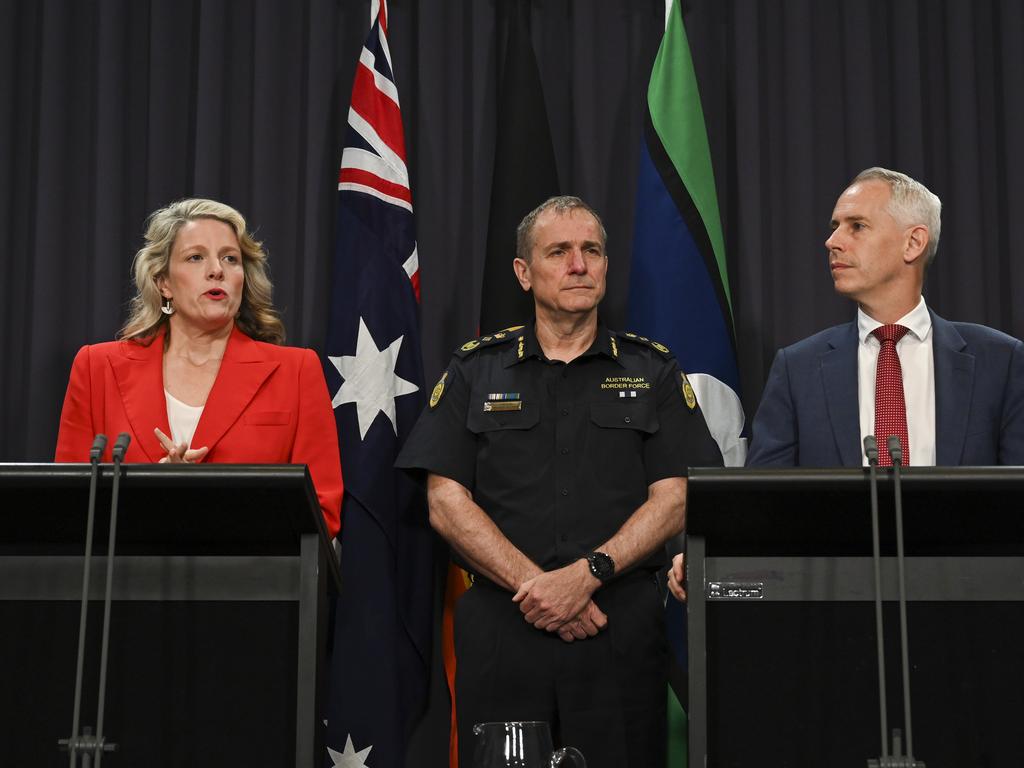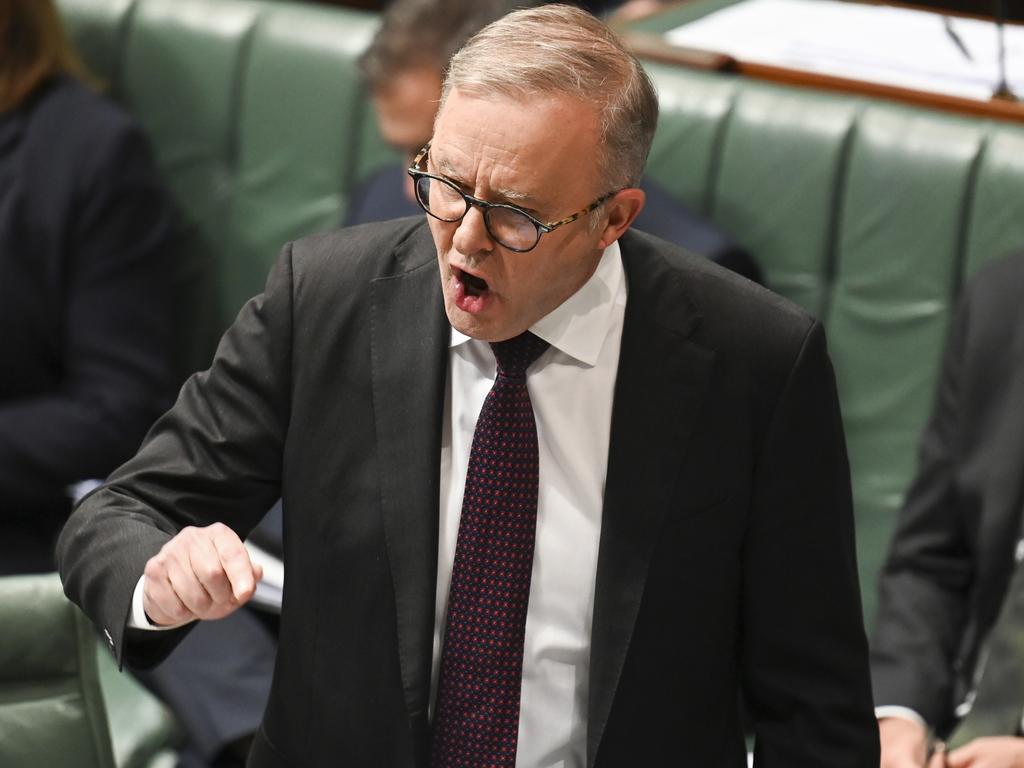Labor moves on detainee laws as High Court says dangerous non-citizens could be subject to preventive detention
Labor will introduce a new preventive detention scheme after the High Court said some dangerous non-citizens could be subject to ongoing detention.

Home Affairs Minister Clare O’Neil has revealed the government will introduce a “tough preventive detention regime” after the High Court found that some dangerous non-citizens released into the community could be subject to ongoing detention.
Ms O’Neil said the government had now received the reasons from the High Court for its landmark decision in the NZYQ case and was “moving quickly to finalise a tough preventive detention regime before parliament rises” on December 7.
“The safety of Australian citizens is our utmost priority,” she said. “We urge the parliament to support the government in protecting the Australian community.”
The High Court found on Tuesday that some dangerous non-citizens including sex offenders who had been released from unlawful detention could be subject to “preventive detention” if they presented an unacceptable risk to the community.
However, this assessment must be based on the merits of each individual case and not on whether a person had previously been an asylum seeker in immigration detention.
Legal experts told The Australian this could pose problems for any new commonwealth legislated preventive detention regime and make a blanket scheme for all of those released into the community unviable.
Executive director of Refugee Legal David Manne said that Australia “already has laws to manage serious risk to the community of reoffending in specific circumstances, there is no need for new laws in this area”.
He said the High Court decision did not provide “any basis for treating refugees differently who have offended from anyone else in the community who has offended”.
In its full decision on the landmark NZYQ case which has resulted in the release of 141 non citizens from immigration detention and overturned twenty years of legal precedent, all seven High Court judges unanimously found that those released from unlawful detention did not have a “right to remain in Australia”.
The decision has made clear that a person cannot be detained in Australia if there is no reasonable chance of them being resettled elsewhere.
But the High Court has also stressed that – should circumstances change and resettlement does once again become likely – individuals who had been released could then be lawfully redetained.
For this reason, the High Court judgment made clear that NZYQ – a stateless Rohingya man from Myanmar who raped a 10-year-old boy but was released from unlawful detention – was still “vulnerable to removal under section 198 of the Migration Act”.

“Issuing a writ of habeas corpus would not prevent re-detention of the plaintiff under ss 189(1) and 196(1) of the Migration Act in the future if, and when, a state of facts comes to exist giving rise to a real prospect of the plaintiff’s removal from Australia becoming practicable in the reasonably foreseeable future,” the judgment said.
“Nor would grant of that relief prevent detention of the plaintiff on some other applicable statutory basis, such as under a law providing for preventive detention of a child sex offender who presents an unacceptable risk of reoffending if released from custody.”
Constitutional law expert at the University of New South Wales, George Williams, told The Australian it was a “very clear decision”.
“The High Court has said you basically can’t detain these people as asylum seekers once the prospect of removal has gone. So you can’t detain them for that reason,” he said.
“Once there’s no real prospect of a person being removed from Australia, they can no longer be detained. There’s no equivocation on that. Its very clear and unanimous,” Professor Williams said. “So the question is: when is it clear to detain these people?”
“If … another country could take them, then they could be detained again at that point,” he said. “If there comes another prospect of removal, they can be detained again and removed from the country.”
Professor Williams also said the High Court made clear that non-citizens who had been released could be detained “as any person can be” on other grounds, such as a sex offender presenting a high risk to the community.
However, individuals could not be subject to ongoing detention “because they are asylum seekers.”
“It’s because they have committed a sex crime and it’s dangerous to release them or they are in some way involved in terrorism and an attack is imminent. So … you are treating them the same way as any other person in Australia,” Professor Williams said.
He suggested this could pose difficulties for the government if it was thinking of introducing a new preventive detention regime – a demand that has been made by the opposition.
George Newhouse, chief executive of the National Justice Project, described the High Court’s findings as an “important decision”.
“It is a fundamental principle of our constitution that no person – alien or non-alien – may be detained by the executive government without statutory authority or judicial mandate. Applying that principle in this case, the court has limited the right of politicians to lock people up indefinitely where there is no real prospect of that person’s deportation becoming practicable in the reasonably foreseeable future,” he said.

“The court also observed that immigration law cannot be used as a punishment and that release from unlawful detention is not to be equated with a grant of a right to remain in Australia, unless an individual is granted such a right under the Migration Act. This means that the individuals who have been released as a result of this decision still remain vulnerable to removal under s 198 of the Migration Act if they can be deported.”
While there has been conjecture about compensation claims against the commonwealth from detainees, Mr Newhouse said it was unlikely that NZYQ would be entitled to any compensation for wrongful imprisonment prior to 30 May 2023 – the date from which the High Court found his detention to be unlawful.
The High Court also noted that the United States agreed less than two months ago to “consider” taking in the Rohingya child rapist behind the High Court’s recent landmark decision on immigration detainees.
The High Court decision, released on Tuesday, detailed how the Department of Home Affairs had been instructed by immigration minister Andrew Giles in late August to approach Australia’s “Five Eyes” partners – the US, the United Kingdom, Canada and New Zealand – to see if any of those would accept the detainee known as NZYQ.
The UK, Canada and New Zealand were all swift to rule out any such step, but an inquiry through the Australian embassy in Washington led to a response from a US Department of State official that they would “consider” the case and “have a hard look”.
“The official advised that, if the United States were to progress acceptance of the plaintiff’s case, it would likely need to receive the case through the United Nations High Commissioner for Refugees or the United States embassy in Canberra and would seek to interview the plaintiff through its embassy in Thailand or Malaysia,” the High Court decision said.
The details of NZYQ’s offending were provided on October 6. But the court noted that, despite “frequent follow-up contact”, there had been no further substantive response by the time NZYQ’s High Court hearing began on 7 November.
The US’s response was described by Home Affairs’ first assistant secretary, international division, as “unique”, given she was aware of only two other cases in which such an approach had been made to the US. In both those cases, the approach had been swiftly rejected.
The court noted that while the removal of NZYQ to the US remained a possibility at the time of the hearing, “the evidence failed to establish that the prospect of removal to the United States occurring in the foreseeable future was realistic”.
Tony Kerin, a spokesman for the Australian Lawyers Alliance, said the High Court had delivered a “very balanced” set of reasons that left the door open for the government to keep people in detention when necessary.
“The High Court is saying ‘just do it lawfully. If you’re going to do it, you’ve got to do it in a principled way that the law requires’. From that point of view, the government can’t complain and shouldn’t complain,” he said.
The government would need to demonstrate that an individual poses a risk to the community before they could continue to be detained.
“This will balance the field a bit,” he said.
“If someone disagreed with the assertion that they were a danger to the community, then they would have the right to call evidence in a hearing. That’s the safeguard you would want to see.”







To join the conversation, please log in. Don't have an account? Register
Join the conversation, you are commenting as Logout